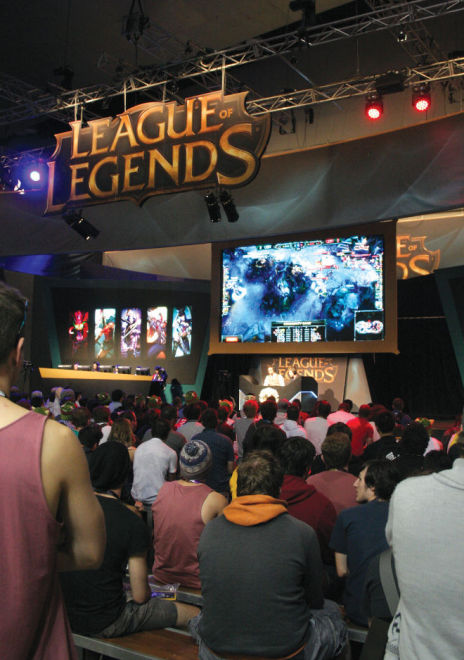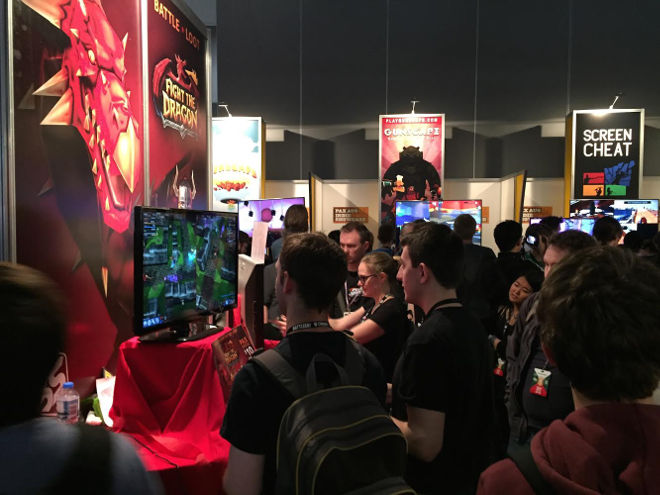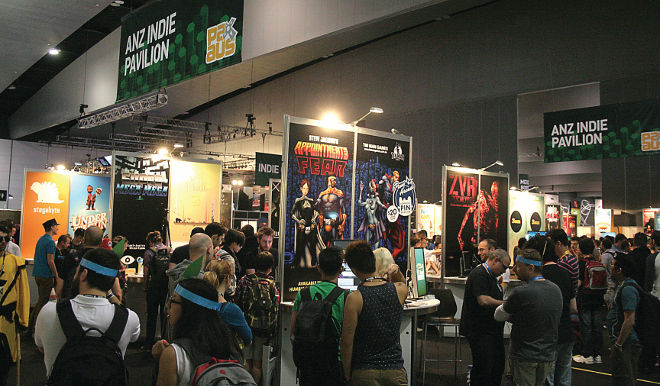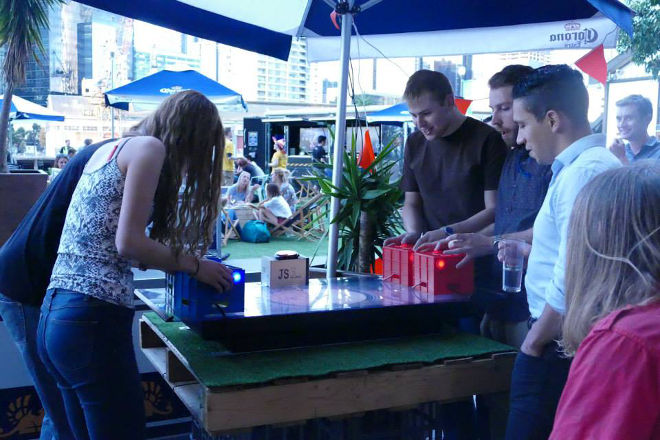What Does The Future Hold For Australia’s Video Games Industry?
Now that the dust from PAX Melbourne has settled, how are Australia's game developers shaping up?

The PAX Australia games conference is well over now. We’ve all probably chucked our 3-day passes in the bin (or at least with last year’s in the bottom desk drawer), and are whittling away the time until Dragon Age: Inquisition comes out at the end of the month.
For those that missed it, over the course of three days at the end of October, PAX (Penny Arcade Expo) was held at the Melbourne Exhibition Hall and Convention Centre (known affectionately by locals as Jeff’s Shed). PAX Australia featured events and stalls from some of the biggest names in the games industry – Xbox, Nintendo, Bethesda, Ubisoft, Riot Games – as well as constant panels, tabletop games, console freeplay and games tournaments.

PAX Prime in Seattle was started up by netcomic tycoons Mike Krahulik and Jerry Holkins, most well-known for their comic Penny Arcade, and has seen a sister convention springing up in Boston, and now Melbourne. PAX began with the intention of hosting a games convention that was open to all gamers rather than just industry professionals.
So. It’s all over and we’ve experienced the shit out of the shameless merch-gazing, the demo binges, the League of Legends tinnitus, bought the third Tabletop-endorsed boardgame and taken the 50th cosplay photo – now the post-PAX depression begins to set in.
Post PAX blues hits about now. Do not be alarmed.
— Robert Khoo (@rkhoo) November 2, 2014
#PAXAus is over. I’m now sad :( — Ray Narvaez Jr. (@AH_BrownMan) November 2, 2014
There is, however, one thing that remains after all the big international game booths have quit the country: our gamer community. I know it sounds naff, but it was us – Australian gamers, game developers and industry reps, and even the Victorian Government (not to be confused with the Australian Government who, after May’s $10 million funding cut to the games development sector, purchased an unmanned Paxaus booth just to make us want to claw Joe Hockey’s eyes out) – who successfully lobbied to be the first PAX convention outside of the USA, and that’s really indicative of the awesome games scene that we have here – especially our exponentially growing indie games industry.
A big part of the appeal when setting up the first international PAX in Melbourne, according to PAX operations and business manager Robert Khoo, was Australia’s dedicated gaming scene. In order to return support to the independent games community in Australia, the PAX team made a herculean effort to showcase local indie developers with a massive 40-booth setup in the exhibition hall.
“I think that was really the big thing about PAX Australia,” said indie games developer Louis Roots, director of Perth-based SK Games. “I’d much prefer to see someone play my game. It’s so much more rewarding to see just one person play it as opposed to getting however many downloads.”
“I grew up south of Perth and went to university doing game design, but when I finished there was no work, so I went to Europe. I found a job in Denmark doing game design … I was there for about a year and decided to leave to start my own show.”
Roots returned a year ago and started up SK Games with the idea of building arcade-style cabinets and displaying their indie games in markets, pubs and other venues. With PAX returning to Melbourne in October this year, the team at SK Games decided to put together a touring pop-up arcade exhibition off the back of the convention and moving on up to Sydney and Brisbane.
“We’ve had a lot of guys from the local scene come to the Melbourne exhibition after PAX and they’re already talking to their friends in Brisbane and Sydney, telling them to come along when it gets there.”
“There’s so many different facets of the industry that are coming up. The communities around it are only growing. It has that great ‘building from the ground up’ feel … Suddenly there’s a way for these games to get out there.”
Before the global financial crisis, Australia had enjoyed a promising games industry. The Aussie dollar was low enough to encourage US and European businesses to outsource games development to Australian companies.
With the fallout from the GFC however, most of the AAA (high budget, high promotion) games businesses in Australia folded. The industry vacuum produced a large number of games professionals who had two choices: go overseas or start up a small games business locally. Since then a number of small-to-medium sized companies working on indie games have gained the Australian scene international respect, if not huge bundles of cash.
“There’re no jobs”, Sean Rozenblum says bluntly about the Australian industry. Rozenblum is the Director of 3 Sprockets and developer of Fight the Dragon, which recently won the Technical Excellence Award at the Australian games industry conference, GCAP.

Strangely, Rozenblum isn’t worried about the industry as a whole. “The thing is though, that it’s either about starting your own business or joining a team and working for free until you get something built.”
“We’ll see lots of one-off (single game) studios come and go, and some new players take the place of some of the more experienced studios too. It will stay a little turbulent probably until ‘whatever is next’ appears and new opportunities present themselves.”
“PAX Australia in itself was a huge win for us… Sure the home market is less than a percent of our sales. But the fact that it’s all digital distribution now means that we can sell internationally from right here.”
One of the main points of agreement for developers across the Australian indie scene is that a lot of the best new games focus on providing new takes on the typical games experience.
“It’s so hard to get exposure, especially now” says Nicholas Mcdonnell, creative director at Samurai Punk. “There was a period of time where independents were just about making small but good games. You would get on a platform and you would make money … Now there are so many independent games coming, getting on these platforms that are completely flooded, you need to have some sort of marketing hook.”
Samurai Punk demonstrated their innovative indie game, Screencheat, to a fixated crowd at PAX Australia. The game, a multiplayer shooter, requires players to look at their opponents’ screen in order to win (if you did this in the 90s you would have been hounded out of the house, dodging knives and rotten fruit).
“I think it’s a really cynical view of the industry but I think that the fault is that the distribution model for independents – like iOS or Google Play if you made a mobile app, or Steam, Humble or GOG – are just flooded with games…The other side of it is that part of being independent is making games that other people aren’t making, so why not try to innovate something?”
“We set up five months ago…in starting out, being part of the Melbourne community has been super helpful, we’ve been able to get assistance from development, business, and legal standpoints.”
“Ultimately PAX is about meeting the community and really building that community. The reward is more intangible than sales, it definitely helps your commitment, it makes it more positive.”
The final consensus, from long-running industry experts to the newest startup developers, is that the Australian indie games scene has become a complex ecosystem that supports artistic integrity as much as business acumen. PAX Australia has tuned into the great community that we have here and helped to provide recognition to an industry that was on the edges of dying out, but which is now once more making a name on the international stage.
–
Raphaelle Race is based in Melbourne and works as a literary publicist, freelance journalist and editor. She blogs about classic fantasy and science fiction books at 20thcenturytales.


